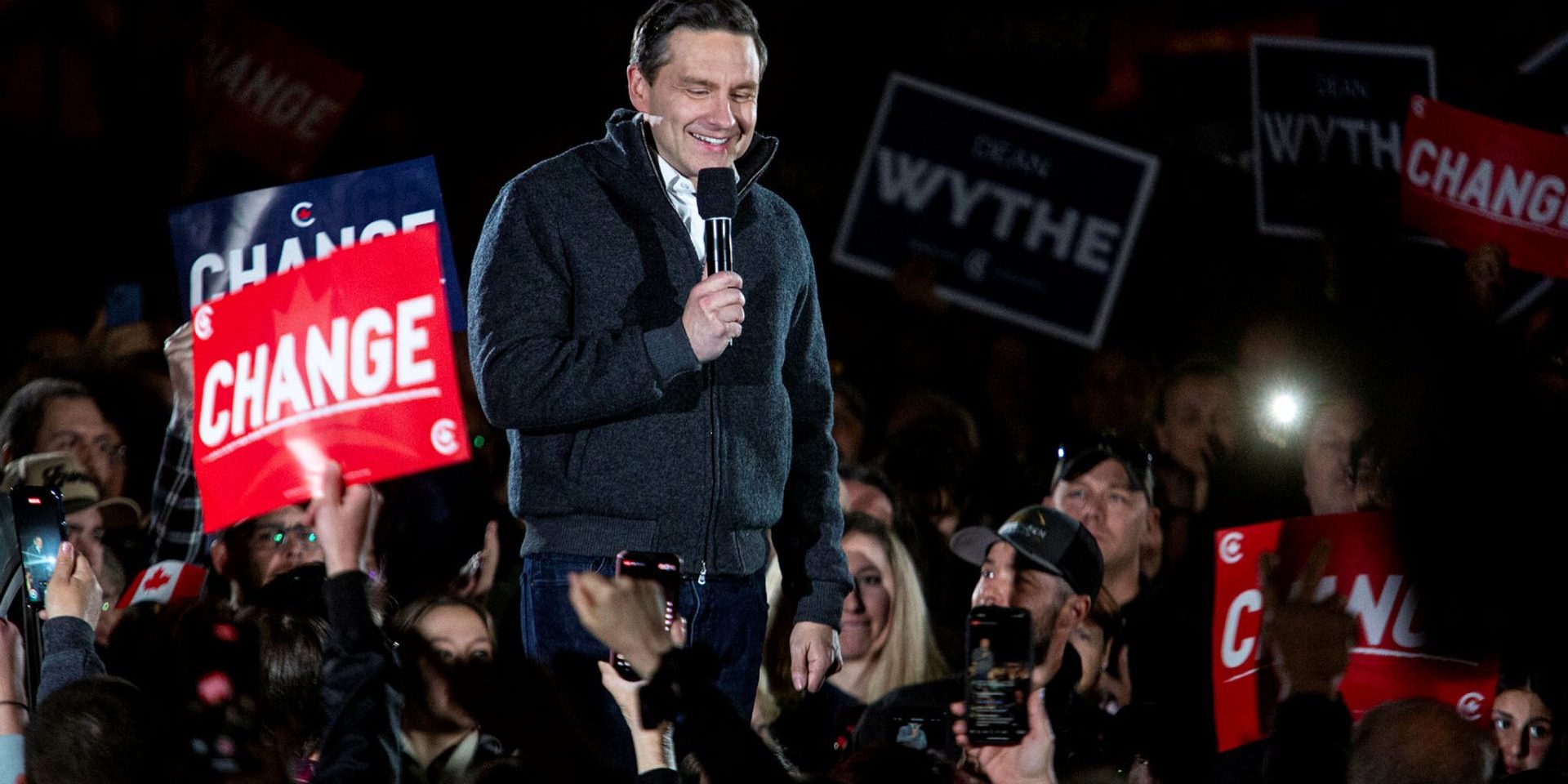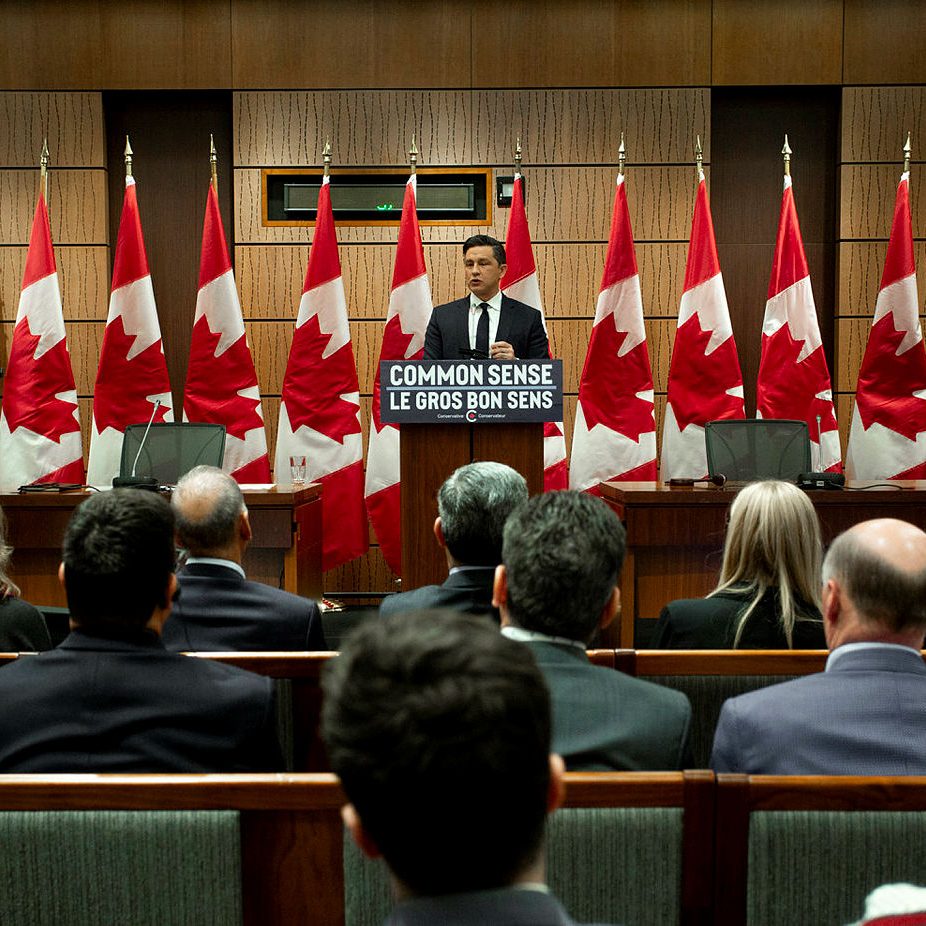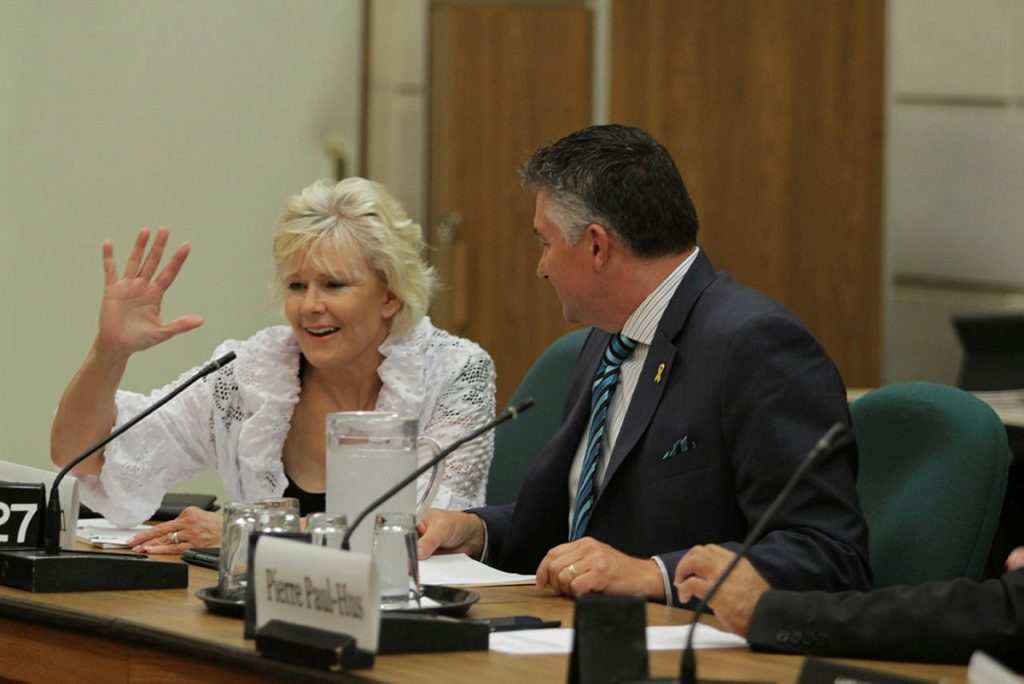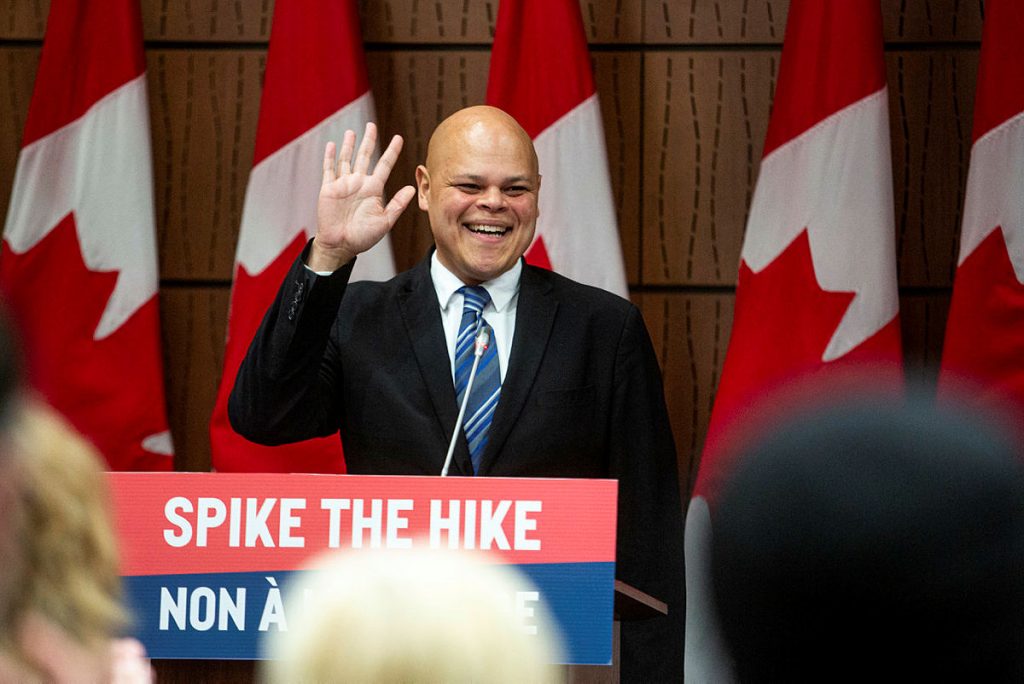Poilievre can only survive as party leader if he makes ‘seismic’ changes to his ‘inner circle’ and to his approach, say current and former senior Conservatives

Until early January, Pierre Poilievre’s Conservatives were widely expected to win a commanding majority in the 2025 election, with projections topping 200 seats, but their April 28 defeat has stunned the party.
The leader’s only path to political survival now hinges on swift changes to his senior staff, his inner circle, and overall strategy, say current and former senior Conservatives.
“If he [Poilievre] doesn’t make enormous, seismic changes in both his staff, his inner circle, and his approach, he won’t survive,” said a senior Conservative in an interview with The Hill Times. “If he can demonstrate the ability to engage and learn from what has happened, then he might.”

In interviews with The Hill Times after the election, several current and former senior Conservatives said they were baffled by how the party squandered a 27-point lead in early January, only to suffer a more than two-point loss in last week’s election.
But once Justin Trudeau resigned as Liberal leader, Mark Carney was elected as his successor, the Liberals scrapped the carbon tax, and U.S. President Donald Trump began his threats to annex Canada as the 51st state, the governing party suddenly shot up in the public opinion polls. The confluence of these dramatic political events quickly moved the needle to the Liberals, and the Conservatives had difficulty changing their messaging. Poilievre is also seen as Trump-like.
Conservatives are questioning their party’s overall campaign strategy, messaging, the party’s lack of election readiness, questionable nomination of dozens of candidates, and the delayed decision to pull Poilievre from advertising—despite knowing full well that the leader’s brand had become a drag on the party. They were also upset that the party did not talk more about United States President Donald Trump’s tariffs, and his rhetoric about annexing Canada.
Sources expressed frustration that despite the party having record amounts of money to spend, Poilievre maintaining full control over the caucus, and despite unwavering support from the national party on every decision, the Conservative Party still failed to win.
“We weren’t talking about tariffs and Trump, which is the key issue,” said a second senior Conservative. “We didn’t remove Pierre from our lead advertising, until, like, the last two weeks, even though his negatives were too high.”
In last week’s election, based on preliminary results, the Liberals won 169 seats, the Conservatives 144, the Bloc Québécois 22, the NDP seven, and the Greens one. In the newly reconfigured 343-seat House of Commons, a party needs 172 seats to form a majority government. The numbers changed a few times last week, after the Liberals’ numbers went down from 169, then back up to 169, after Terrebonne, Que., flipped from the Liberals to the Bloc, and Milton East-Halton Hills South, Ont., flipped from Conservative to Liberal.

In comparison, after the 2021 federal election—when the House had 338 seats—the Liberals won 160 seats, the Conservatives 119, the Bloc 32, the NDP 25, and the Greens two.
Poilievre not only failed to form government, but also lost his own riding, leaving him without a seat in the House of Commons. He was defeated by rookie Liberal candidate Bruce Fanjoy by a margin of 4,315 votes—a significant difference, especially given Poilievre’s two decades as an MP for Carleton, Ont., and widespread expectations that he would lead the Conservatives to a supermajority.
On May 2, the Conservative Party announced that Damien Kurek, who secured re-election for a third term on April 28 with 81.8 per cent of the vote in one of the party’s safest ridings, will step down to allow Poilievre to run in the riding.
“It is with humility and appreciation that I have accepted Damien Kurek’s offer to resign his seat in Battle River-Crowfoot so that I can work to earn the support of citizens there to serve in the Parliament,” Poilievre posted on X. “Damien’s selfless act to step aside temporarily as a Member of Parliament shows his commitment to change and restoring Canada’s promise.”
Poilievre said he will work to earn the trust of the constituents of Battle River-Crowfoot and promised to hold the Liberal minority government to account until the next federal election, “when we will bring real change to all Canadians.”
But it remains to be seen if Poilievre can survive as party leader after failing to form government after an election. In recent federal political history, only Stephen Harper has remained as Conservative leader after losing an election—surviving the 2004 defeat and being given a second chance. That exception was largely because the newly formed Conservative Party—created just months earlier through the merger of the Progressive Conservative and Canadian Alliance—had only recently come into existence.
Aside from that, in both the Liberal and Conservative parties, every leader who’s lost an election has either resigned voluntarily, or has been forced out.
Poilievre may have to face a caucus vote if his Conservative MPs adopt the Reform Act this week that would allow them to vote on a leadership review. He will also face a leadership review by the grassroots party members at the next policy convention, which will take place in the capital either next February or March. As of last week, the date was not finalized, but it will take place in Ottawa at the Rogers Centre.
NDP Leader Jagmeet Singh resigned as party leader on election night after his party failed to meet the official party status threshold of 12 seats. He also lost his own riding of Burnaby Central, B.C.
Tensions have been simmering between the federal Conservatives and their provincial counterparts in Ontario and Nova Scotia, and those divisions surfaced publicly during the federal election campaign. Kory Teneycke, who served as campaign director for Ontario’s Progressive Conservatives in three elections, openly questioned why Poilievre wasn’t addressing the U.S. trade war more forcefully—an issue that, he noted, was top of mind for many Canadians.
On election night, April 28, Conservative MP Jamil Jivani (Bowmanville-Oshawa North, Ont.) accused Ontario Progressive Conservative Premier Doug Ford of “sabotaging” the federal Conservative campaign by second guessing the federal campaign strategy. He said that the federal cousins did not interfere in the Ontario provincial campaign, but Ford took shots at Poilievre for not talking more about the trade war with America.
Nova Scotia’s Progressive Conservative Premier Premier Tim Houston also said in a press conference last week that after failing to form government, the federal Conservatives need to do some “soul searching” as to why they could not win. He said that the federal Conservatives were very good at pushing people away, not pulling people in.
“I think there are many shades of blue, and it can be a big tent and it can be an effective big tent,” Houston told reporters last week.
“After four consecutive losses to the Liberal party, I think it’s time for them to do some soul-searching. And I hope they do.”

During the election campaign, Poilievre held an event in Trenton, N.S., but Houston did not attend. The premier also released a video on social media that appeared to suggest that Houston was interested in the federal Conservative leadership. Last week, he denied he had any plans of running for the federal leadership.
In a media availability last week, Ford said that Poilievre offered no support to the Ontario PCs during the provincial election just two months ago, instructing his federal candidates and MPs to stay out of the campaign.
“Last time I checked, Pierre Poilievre never came out in our election. [As a] matter of fact, him, or one of his lieutenants, told every one of his members, ‘Don’t you dare go out and help the [Progressive Conservatives]’. Isn’t that ironic?” Ford said last week in a media availability.
Nick Kouvalis, Ford’s pollster, recently questioned on social media platform X how Poilievre squandered the lead in the polls, and why the federal Conservatives failed to stand up to Trump.
“We lost a 20+point lead because we would not stand up to Trump’s continuous threats of economic war, his strategy to annex Canada and his delusional plan to rule over us. Then, we lost the election. And, Pierre lost his seat,” wrote Kouvalis on X on April 30. “Be a fucking leader and stop playing along with the losing arguments of comparing yourselves to two premiers who have recently won majorities. Fuck man. This is not the way forward for Pierre to hold on to the leadership, build a bigger team and the next election.”
Meanwhile, Conservative sources said that when Poilievre meets his caucus this week for the first time after the election, it will not be the same caucus over which he had ironclad control. Until election day, they had to clear everything with the leader’s office, and had to get permission from the office even if they wanted to travel within Canada.
Now, MPs will feel free to speak up, and the leader will not have the same control that he did before the House adjourned in mid-December. They said that if Poilievre wants to stay on in the top position, he will have to make immediate changes to his inner circle and the approach in running the party.
“Everybody’s in shock, even though there are some positives, feels like there’s been a death in the family, because we were promised a historic super majority,” said a former senior Conservative. “There are definitely some positives, but what didn’t materialize is what everybody is mourning.”
John Reynolds, former interim opposition leader and co-chair of the 2006 federal election campaign, told The Hill Times that Poilievre should stay on as party leader, but said he needs to make changes to his top campaign team. He said that the infighting between the provincial PCs and federal Conservatives should stop.
“I would hope that these people would stop fighting with each other,” said Reynolds.
“He [Poilievre] needs to change his campaign team, maybe, Jenni Byrne has had her day. I would hope that he [Poilievre] would just look at putting a good team together, and let’s get back to fighting [the Liberals]. We do a good job of that, and we got lots of members now, and we’re very close, we’ll win the next election.”
arana@hilltimes.com
The Hill Times






 LICENSING
LICENSING PODCAST
PODCAST ALERTS
ALERTS













